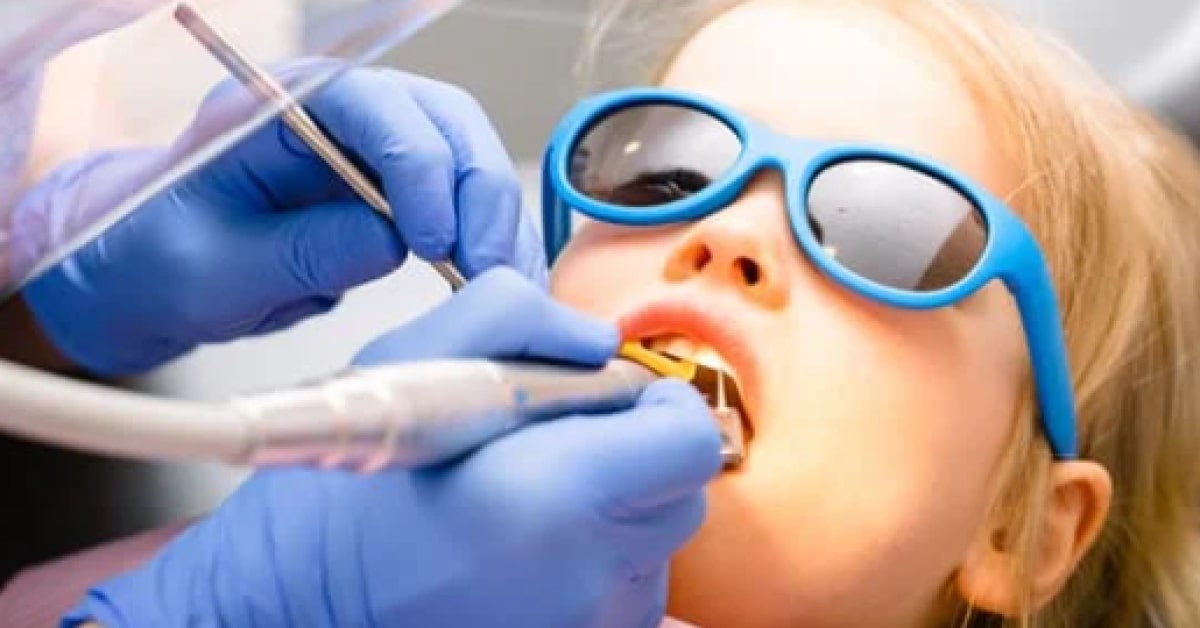Blog
December 23, 2022 • 7 min readFibromyalgia and Oral Health
Fibromyalgia is a condition that causes chronic pain, stiffness, fatigue, anxiety, and depression.
Author
Danielle Duncan

In this Article
Fibromyalgia is a complex syndrome that is characterized by chronic pain, stiffness, fatigue, sleep disturbance, anxiety, and depression caused by a problem with the brain-nerve signals. When someone has Fibromyalgia (Also known as Fibro), the brain misunderstands everyday sensory experiences and pain, making them more sensitive to pressure, bright lights, noise, and temperature.
Fibromyalgia is a relatively common condition that affects as many as 4 million Americans, most of which have been diagnosed between the ages of 35 and 45 years even if the symptoms started much earlier in life.
But, what does Fibro have to do with dental practices and the oral cavity? How do dentists appropriately treat Fibromyalgia patients and limit the effects of their medications on the mouth?
How does Fibromyalgia Impact Dental Treatment?
- Dry Mouth Unspecified (Code: R68.2)
- Sjögren syndrome with dental involvement (Code: M35.0C)
- Xerostomia (Code: K11.7)
It is common for Fibromyalgia patients to complain of dry mouth. Dry mouth symptoms can be caused by different factors such as hypothyroidism, medication, or sleeping with their mouths open. When looking at a patient’s medication list, look for meds that are known to cause dry mouth. This information can be found with a simple web search. Include in your clinical notes that the patient takes ABC medication, and that this medication causes dry mouth.
A dry mouth, regardless of its cause, can contribute to problems with the oral cavity and overall dental health. Some of the symptoms of dry mouth that you may encounter are:
- Burning mouth syndrome.
- Difficulty chewing, swallowing, tasting, and speaking.
- A dry, scratchy feeling in the throat.
- Dental cavities.
- Gum and mouth infections.
- Tooth loss and decay.
These symptoms are typically caused by a lack of proper function in the salivary gland. Saliva is extremely important in aiding digestion and overall mouth health. When billing medical insurance for dental procedures that are linked to dry mouth, it’s helpful to run a PH test, and add these finds to your clinical notes. Remember, the PH test itself is also billable to medical insurance.
- TMD/TMJD (Code: Temporomandibular joint disorders, M26.6X)
According to the American College of Rheumatology, TMD (Temporomandibular Dysfunction) is frequent in Fibromyalgia patients. TMD can cause a slew of problems for patients and the dentists that treat them.
Some potential problems and symptoms that a Fibro patient who is also inflicted with TMD symptoms may face are:
- Teeth do not fit well together.
- Muscles are under stress, may be tight, and pull the jaws out of alignment.
- A physical derangement of the joint due to degenerative disease or trauma.
- Teeth grinding.
- Clicking and grinding noise when chewing or talking.
- Chronic headaches.
- Ringing in the ears (Tinnitus)
- Pain in the jaw, head, face, ears, neck, and shoulders.
- Higher Pain Levels:
Fibromyalgia crosses the wires of the brain that cause pain signals. This can dial up the overall level of pain and discomfort that a patient feels at any given time throughout the day.
While a normal person wouldn’t react to a light brush of the skin, someone with Fibro is more likely to feel this sensation as a jolt of genuine and intense pain.
Due to this, many patients with Fibromyalgia may avoid getting dental treatment on a regular basis.
Why is Dry Mouth Bad News for the Mouth?
Dry mouth, frequently caused by the medications taken by Fibro patients to help keep painful flares at bay can wreak havoc on overall mouth health. When a person has a dry mouth, it significantly increases the risk of tooth decay and loss due to a lack of saliva.
When you take saliva out of the mouth environment, things can take a turn for the worse rather quickly. When your saliva production decreases you lose a natural protective barrier that has antifungal properties, components that destroy bacteria that cause decay and neutralizes harmful acids. The loss of the many benefits of well-functioning salivary glands can lead to tooth decay and tooth loss if appropriate steps aren’t taken to prevent the degeneration of the overall health of the patient’s mouth.
Some oral symptoms of dry mouth are:
- Thick, stringy feeling saliva
- Rough, dry tongue
- Problems with chewing and swallowing (especially dry foods)
- The tongue may stick against the roof of the mouth
- Bad breath
- Dry, cracked lips
- Mouth ulcers
- Frequent oral thrush infections
- Burning, prickly sensation in the mouth
- Loose acrylic dentures
- High rate of tooth decay
Ways to treat dry mouth in Fibro patients can be more complex than treating it in otherwise healthy patients. In some cases, you may need to work alongside the patient’s medical doctors to adjust or change medications to help relieve dry mouth symptoms.
If the patient isn’t able to change their medications, there is still hope in treating this problematic medication side effect:
- Prescribe a saliva substitute. When used strictly as directed, saliva substitutes can help to prevent further decay and lessen the symptoms of dry mouth.
- Dry mouth products that help to lubricate and treat dry mouth. These can range from toothpaste, gums, topical gels, and mouthwash.
- Antibiotics and antifungal drugs to treat infections caused by dry mouth.
- Dental products that contain high levels of fluoride or calcium that help to prevent tooth decay.
While dental or medical treatment of dry mouth can help to ease symptoms, patients can also take steps in mitigating the effects of dry mouth on oral health. Some steps that patients can take to care for their mouth health while guided by dental professionals are:
- Avoid products that cause dry mouths such as alcohol, caffeinated drinks, spicy food, and cigarettes
- Chew food thoroughly before swallowing
- Eat chewy foods to stimulate saliva flow (unless the patient has TMD)
- Avoid crunchy or sharp foods that could damage the mouth
- Avoid overly sugary or acidic foods and drinks
- Chew sugar-free gum to stimulate saliva production
- Stay hydrated and drink plenty of water
- Appropriate oral care such as brushing teeth, flossing, and using fluoride-based products
- Use vaseline or chapstick on dry lips caused by dry mouth
- Never sleeping in dentures
- Maintaining an appropriate visit schedule with their dentist
Teeth Grinding and Fibromyalgia
Tooth grinding is relatively common in people with Fibromyalgia due to the pain and discomfort they feel on a regular basis. This can be an unconscious coping mechanism or caused by muscle spasms.
Grinding teeth can cause a significant amount of damage to the overall health of the mouth, making it important to treat bruxism as soon as it is found in a patient.
How to Provide Dental Treatment to Fibro Patients
Treating Fibromyalgia patients can seem daunting, especially since they have likely avoided being seen by a dentist on a regular basis. Most patients will wait until they already have advanced tooth decay or pain in their mouths. It is incredibly important to foster a positive relationship with your Fibro patients to ensure that they keep up with their appointments and the care that they need to prevent irreversible damage to their teeth and gums.
When treating a patient with Fibromyalgia it is important to keep their pain levels in mind. Dental procedures can be uncomfortable for the average patient, let alone a patient with this debilitating condition.
You may want to consider the use of painkillers to help your patient through even basic dental work to keep them comfortable throughout the procedure. In extreme cases, you may also need to work directly with the patient’s medical doctor to provide the safest possible environment for treatment and to collaborate on a treatment plan to help resolve or reduce decay and tooth loss caused by medication side effects.
Patients can also help reduce the overall effects of Fibro on their oral health. Get your patients involved by having them practice self-care at home. Some things patients can do from the comfort of their own homes are:
- Avoid excess stress
- Eat healthily
- Maintain appropriate posture (this is especially important for patients suffering from TMD)
- Practice good oral hygiene. Flossing, brushing, and fluoride mouthwash will help promote a healthier mouth
- Wear appropriate night guards if they suffer from bruxism
- Massage their masseters to help muscles relax
- Practice resting their tongue at the top of their mouth, behind their front teeth
- Stay hydrated
- Suck on hard sugar-free candies or chew sugar-free gum to promote saliva production
How to Get Medical Insurance to Cover Dental Services for Fibro Patients
When a patient with Fibromyalgia presents at a dental office, it’s important to look at things through a medical lens. Do you believe that the condition of the oral cavity is a direct result of Fibro and the associated complications? If the answer is yes, you have a medical billing opportunity.
The first step is to break the treatment plan into two categories, medical and dental. A crown that needs to be replaced due to poor margins, would not likely be caused by the underlying medical condition, therefore that would be added to the dental category.
However, the loss of teeth, and the treatment required to replace them ie. extraction, grafting, membrane, implant, abutment, and crown, would be put in the medical category.
The procedures in the dental category would be submitted to dental insurance. Those identified as medical are those believed to be medically necessary and should be billed to medical insurance.
Remember, just because there is clear scientific and clinical evidence that the patient’s dental treatment is medically necessary, the medical insurance payer may not see it that way. They may require additional information or may have a policy exclusion that limits coverage for dental treatment. Pre-authorization is ALWAYS recommended when billing systemically related dental treatment to medical insurance.
For more information on how to bill medical insurance for dental treatment related to conditions like Fibromyalgia, please visit www.devdent.com and complete a FREE practice assessment.



